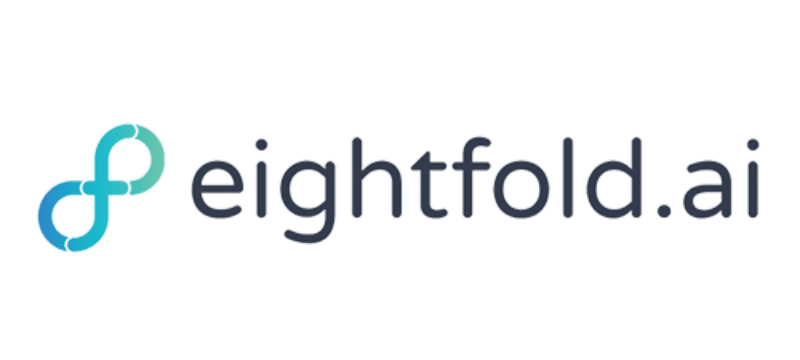The role of a universal skills framework in the future of work
Many organizations don’t know what skills they need (now, or for the future), or how to develop them.
Equally, employees don’t know the skills they should learn or the career paths available to them, which oftentimes results in employees voting with their feet, through lack of motivation or progression.
There's also plenty of evidence of where a poor understanding of skills required for new talent, has led to poor hiring decisions and the consequential implications that ensue these.



Many organizations are struggling to make the shift to skills as the currency of their talent ecosystem. At the same time, legacy competency models and job architectures still abound. Can the two co-exist? Should they?
In this on-demand session, with UNLEASH, Bayer, and eightfold.ai, our panel discusses how organizations can have just that. They also identify tangible ways companies can establish a common language around skills to help break down silos in talent management.
Watch on-demand to:
- Consider why the shift to skills as the currency of talent needs to happen, to prevent organizations from being left behind.
- Hear the pros and cons surrounding the co-existence of legacy competency models and job architectures whilst shifting to a skills-focused approach to talent management.
- Learn ways you can establish a common language around skills to break down silos in talent management.
- Take the first steps in reinventing your approach to understanding and developing the workforce capabilities you need, providing employees a path to pursue, bettering retention, bettering hiring practices, improving productivity, and creating resilience in your organization for the future.
Skills are the core currency for future talent management
A Skill: An ability to do an activity or job well, especially because you have practiced it.
Today, talent management is fragmented and supports a legacy model of work. For many organizations, there is an eclectic array of different systems and places where knowledge on the workforce’s skills sits, with no singular source of truth: From the HRIS to the LMS through to competency models and so many more hubs of information. In the world of work today, and especially when gearing for the future, it’s vital that HR leaders and organizations alike, understand the value of the currency of skills, and mitigate this traditionally siloed model.
Over the last few years, for those organizations shifting ahead of the curve, there has been an evolution from traditional job families being the core denominator for modelling the workforce. Whilst job families still exist in these pioneering settings, these HR leaders and organizations have understood the value of looking at their workforce (and prospective workforce) through the lens of skills. It is becoming more apparent that in order to remain agile and to allow our people to adapt as quickly as the organization to the changing world around us, skills will become the normalized vehicle to discuss job fit and the mobility prospect of individuals. This shift will provide organizations with a fluent and free flow of talent and competitive future-readiness.
The panelists in this webinar session, specifically Heika Bauer, Global Director of Learning – HR Solutions from Bayer, considered how skills are being habituated outside of the workplace. She gave the example of LinkedIn profiles and the usage of skills adding value to individuals here, but then this for the large part, not being taken in house by the organizations they work for. It’s clear that the information is readily available, but now organizations must investigate where this information lies, empower employees to share this information, and create a single source of truth so that HR teams and the organization can offer employees the right opportunities at the right time – bettering experience, engagement, and retention levels, as well as reducing the need to hire externally.
But, have you lost the skills game already?
There are clearly some blockers with establishing a robust talent management strategy and processes based around skills. Some examples discussed by our panel included;
- The difficulty in predicting skills of the future, with 42% of core skills expected to change by 2022, the pace of change is frightening.
- The jobs of tomorrow are hindered by skills of today, as accounting for both is time-consuming and resource-heavy.
- The granularity and scale of establishing and measuring skills within an entire company can seem incredibly daunting.
- The lack of expertise around specific, technical skills can be a hindrance. The whole reason you might want to hire someone with certain skills is that you lack the knowledge in-house, which can make knowing what skills to look for incredibly challenging.
- The required trust from employees to make information and data on themselves available to their employer.
- The number of skills has exploded over time.
- The relationships between skills and roles change over time, and so too their definitions evolve.
How and why a dynamic skills framework delivers the goods
As the panelists discussed, the lack of developing critical skills (and being able to map these) within an organization, has a huge impact on the success of an organization. As eightfold.ai succinctly discusses, “Whilst talent needs can’t always be met with current employees, the most cost-effective and strategically sound approach to meeting talent needs is to develop the skills of employees you know rather than rely on external candidates you do not.”
It also outlines that “We need a strategy for the future. We will make investments and decisions to enable us to plot a course to improve performance outcomes. This is how we prepare for changing business dynamics, such as industry disruptions, a retiring workforce, consolidations, and sell-offs.”
However, it’s become apparent that there are clearly blockers for HR leaders and organizations with skills being unable to be managed manually or through ‘traditional’ models and systems. This is where a self-learning model comes into its own. Through an AI deep-learning model, you can manage workforce skills at scale. This technology, as our webinar panelists considered, can not just map the skills within the organization today, but equally work out the people that are likely to be able to learn a skill, not just identify those that already have it.
Where many organizations are falling short, the panel discussed, is when they confuse the relationship between skills and competencies. This, in turn, has led to many not evaluating talent based on their ability to achieve the required outcome of a task or role. This granular focus on skills perpetuates an inefficient, redundant understanding of skills across the enterprise – where skills are created in a vacuum and are more granular than they need to be; it’s easier to create a new skill than find one on a list that fits the job role.
Alternatively, a dynamic skills framework requires a global understanding of skills data, where AI is able to identify skill groupings, relationships, clusters, trends, etc. and can deliver to the business:
- A common understanding of job roles at the most basic level.
- A map of the relationship between skills across the organization.
- Visibility into relationships between skills, roles, jobs, etc.
- Infrastructure to create personalized L&D opportunities.
- The foundation on which to build more agility into talent strategy.
By employing a dynamic framework to skills within an organization, HR leaders are empowered to break down silos in talent management, as well have the tools and information readily available to develop the workforce capabilities needed, providing employees a path to pursue, bettering retention, hiring practices, improving productivity and creating resilience for the future.
To understand more about how Bayer has implemented a dynamic skills framework and more about eightfold.ai’s talent management maturity model, check out the on-demand recording of this webinar session, now.
